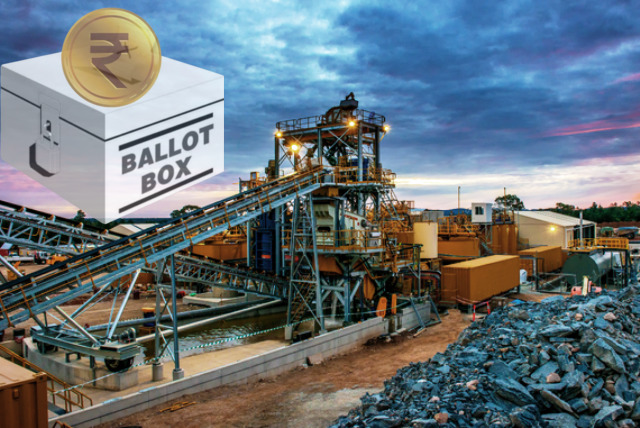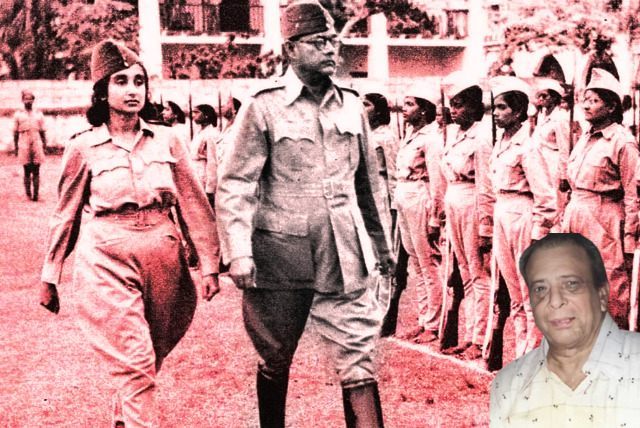
Mining Electoral Bonds to Curry Favours?
India is exceptionally rich in mineral resources, be it thermal coal, iron ore, bauxite or limestone. It also has fairly large endowments of zinc ore, manganese ore and chromite. Helped by resource bounties and growing local demand for energy and metals, India is counted among the world’s major producers of thermal electricity, which, however, meets with increasing frowning by environment activists, and steel, aluminium, zinc and cement. The governments at the centre and in states have over the years introduced many mining related reforms, the most important being the dispensing with the power to make discretionary allotment of reserves in favour of their auctioning. This is aiding transparency in resource allocation.
The authorities had been under growing pressure to introduce reforms as the mining sector’s production performance was not in line with resources lying underneath the earth. Moreover, much to their embarrassment, the extensive wrongdoings in the mining sector, resulting from the nexus between miners and a section of bureaucracy was increasingly coming to light. First in Karnataka and then in Goa, the Supreme Court cancelled iron ore mining leases on grounds of illegalities some years ago.
Such strong action, which had a telling effect on the country’s production of steelmaking ingredient and its supply to local steel mills and for exports must have instilled some fear and discipline among miners. The Goa government was in the firing line for its act of omission. In an indictment of the local administration, the Court said while its direction was to grant fresh licences in accordance with the mining laws, the state government’s renewal of mining leases was found to be “unduly hasty, without taking all relevant material into consideration and, therefore, not in the interest of mineral development.” The Court found violations of environmental norms in the process of ore extraction and its transportation in Goa in particular quite distressful.
After all the reforms, between making a successful bid for lease ownership of a reserve and opening of the mine is still a tortuous process where government agencies at the Centre and in states have a decisive say. Because of the rigmarole, including time-consuming environment and forest clearances, a mine opening in India can take up to eight years against three years in Australia, the world’s largest producer and supplier to the global market of a number of minerals. What will be admitted straightaway is the continuing need for government oversight once a mine is opened because mines in India are found to be prone to breaking rules with impunity and cutting corners endangering the lives of workers and causing harm to the environment. But for such oversight to be effective demands that officials posted in far corners where extraction happens will honestly record all mining related misdoings to be followed up by corrective and also exemplary actions by people at higher bureaucratic echelons.
As sector observer members of civic society will say, if this were the case then the “murky affairs” relating to Karnataka and Goa mining would not have happened. Monitoring of mines operations by using satellites and drones might have curbed what is visible from air. What will, however, always stay under radar are the dubious deals in the sector happening all the time because of the unholy understanding between miners, politicians and government officials. Avarices of miners apart, politicians and bureaucrats will not miss the opportunity to line their pockets by way of withholding required permissions till they get paid and overlooking many acts of omission by mining groups, again for a consideration.
All these are among the reasons why the mining sector has remained bereft of foreign direct investment (FDI). This is despite New Delhi’s liberalised FDI policy allowing 100 per cent foreign equity holding in the sector on automatic route for all non-fuel and non-atomic minerals. Diamond and precious stones also remain beyond the scope of FDI. Finding the overall environment not to their liking, years ago British-Australian mining giant Rio Tinto (the world’s second largest) and Norwegian bauxite and aluminium producer Norsk Hydro cried off from India. While Rio Tinto had big iron ore mining plans in the then Orissa (since renamed Odisha), the Norwegian group had nursed the ambition to develop a bauxite mine and an alumina refinery in the downstream in the same state in partnership with Tata Sons and Canadian Alcan, part of Rio Tinto since 2007.
What could have been a richly rewarding business for the three iconic houses is now owned by Kumar Mangalam Birla’s flagship Hindalco Industries. Called Utkal Alumina International, a 100 per cent subsidiary of Hindalco, it has a highly cost effective 2.1 million tonne alumina refinery at Rayagada in Odisha and a 8 million tonne bauxite mine at Baphlimali also in the same state.
ALSO READ: Why Business Houses Betting Big on Orissa?
What has underwritten the success of Birla when a combination of bigger entities, unable to take the project forward, sold their entire stakes to the former in phases? The cryptic answer will be the Birla group’s capacity, which several other Indian entities too have, to manage the environment to its advantage. The expression ‘manage the environment’ stands for the skill to find resolution of any thorny issues by taking care of the right people. Ask any media person writing on mining, she/he will confirm the opaqueness of the sector. However big private sector mining companies may be, they will have nothing to do with the media.
Their reluctance to share basic industry related information, which has nothing to do with their own working is galling. They are not listed on stock exchanges. Therefore, they have no obligation to publish quarterly and annual results and annual reports. PSUs in the country’s mining universe such as Coal India, NMDC and Moil are, on the other hand, listed entities and the media has easy access to them. In a government undertaking all income and expenses are to be shown in books and their officials cannot find a way out of a difficult situation by paying bribes.
And also unlike private sector companies, mining, metal and power PSUs were not buyers of electoral bonds, an instrument made available to business houses to support electioneering efforts of political parties of their choice. In the list of top 20 electoral bond purchasers are found Vedanta, a major producer of oil, iron ore, zinc ore and aluminium, Essel Mining, an unlisted money spinner for Aditya Birla group and Haldia Energy, a coal-based power producer in RP-Sanjiv Goenka group. Vedanta bought electoral bonds of Rs376 crore, Haldia Energy Rs377 crore and Essel Rs225 crore.
At this writing, one does not know how the mining and metal groups went about in giving the bonds to political parties. Incidentally, the five companies belonging to Jindals but managed separately by family members bought bonds of Rs195 crore. Jindals have a big manufacturing and mining profile in Odisha and they have a hugely Odisha based ambitious growth plans. It’s a given that BJP being an all-India political party will be the largest recipient of electoral bonds purchased by companies and individuals. What at the same time can be said with certainty is that mining, power and steel groups made large donations to Odisha’s Biju Janata Dal and West Bengal’s Trinamool Congress for obvious considerations. Nothing to do with politics or ideology.
For more details visit us: https://lokmarg.com/
The article makes us aware why India in spite of being the world’s largest democracy finds itself among the most corrupt countries – our ranking in the global corruption index has slid from 85th in 2022 to 93rd in 2023 – and in the happiness index we came 126th out of 146 countries last year. The question is why should a company engaged in selling lottery tickets or producing country liquor be making such large donations to a political party like Trinamool Congress in West Bengal through the now scrapped electoral bonds. One can easily make out why mining, metals and thermal power groups had to pay up inconceivably large amounts of money to parties in power at the centre and in states to be able to run their businesses the way they want. Fortunately, the country is blessed that it has in its highest court judges who are very courageous, upright and learned. They are acting as saviour of democratic principles.



